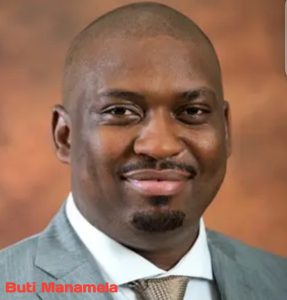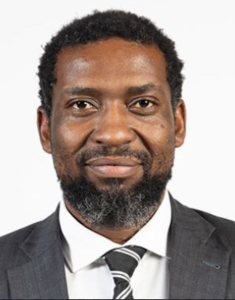Buti Manamela Biography: Age, Career, Education, Family & Political Influence
Buti Manamela Biography
Buti Kgwaridi Manamela (born 10 July 1979) is a prominent South African politician, currently serving as the Minister of Higher Education, Science and Technology as of July 2025. With a career spanning over two decades, Manamela has played a pivotal role in shaping youth development, education reform, and progressive policy-making in South Africa.
Buti Manamela Early Life & Education
High School Education
School: Phagameng High School, Modimolle, Limpopo Province
Leadership Role: Served as President of the Student Representative Council (SRC)
Activism: Joined the Congress of South African Students (COSAS) and the ANC Youth League in 1993
These early experiences laid the foundation for his lifelong commitment to youth empowerment and political engagement.
Technical & Vocational Training
Institution: Mamelodi College (now Tshwane North TVET College)
Field of Study: Electronic Engineering
Qualification: Studied toward an N-Certificate in Electronics
Years Attended: 1998–2001
Student Leadership:
SRC President (1998–1999)
Active in South African Students Congress (SASCO)
Served as SASCO Provincial Chairperson and later National Deputy President in 2000
Postgraduate Education
University: University of the Witwatersrand (Wits)
Qualifications:
Postgraduate Diploma in Public Policy and Development Management (2014)
Master’s Degree in Public Policy and Development Management (2017)
These studies equipped him with strategic policy-making skills, which he now applies in his ministerial role.
Additional Academic Roles
President: South African College Student Association (now SAVETSA)
Advocacy: Promoted access to education and transformation of TVET colleges
Public Statements: Frequently emphasizes the importance of vocational education and the decolonization of curricula
Buti Manamela’s educational path reflects a blend of technical expertise, student activism, and policy scholarship—making him uniquely positioned to lead South Africa’s higher education transformation.
Buti Manamela Birthplace: Phagameng, Modimolle, Limpopo Province, South Africa
High School: Phagameng High School – served as SRC President
Tertiary Education:
Studied Electronic Engineering at Mamelodi College (now Tshwane North TVET College)
Earned a Master’s Degree in Public Policy and Development Management from Wits University in 2017
From a young age, Manamela was deeply involved in student activism, joining the Congress of South African Students (COSAS) and the ANC Youth League in the early 1990s.

Buti Manamela Political Activism & Rise to Power
Young Communist League (YCLSA)
Founded: 2003
Role: Inaugural National Secretary
Tenure: 2003–2014
Advocated for youth empowerment, education access, and radical economic transformation.
Buti Manamela Parliamentary Career
Elected to National Assembly: 2009
Served on:
Portfolio Committee on Labour
Portfolio Committee on Communications
Economic Development Committee
Deputy Minister Roles
Deputy Minister in the Presidency: 2014–2017
Deputy Minister of Higher Education & Training: 2017–2024
Deputy Minister of Higher Education, Science & Innovation: 2024–2025
Ministerial Appointment
Appointed Minister of Higher Education, Science and Technology: July 2025
Tasked with reforming NSFAS, SETA, and driving decolonization of education.
Buti Manamela Political Affiliations
African National Congress (ANC): Member of the National Executive Committee
South African Communist Party (SACP): Member of the Central Committee
Known for his support of Jacob Zuma during his presidency and his advocacy for radical economic transformation.
Buti Manamela Public Statements & Advocacy
Buti Manamela is known for his bold speeches and youth-focused policies:
“Young people matter. Their contributions to this country and the world have been historic.”
Advocated for gender equality, anti-GBV campaigns, and education access for marginalized communities.
Buti Manamela Personal Life
Buti Manamela Spouse: Married to Vuyo Mhlakaza, a fellow politician
Children: Two
Buti Manamela Hobbies: Participated in the Comrades Marathon in 2018
Known for balancing public service with family life and personal wellness.

Buti Manamela Net Worth & Public Image
Buti Manamela Estimated Net Worth: ~$2 million
Income sources include:
Government salary
Public speaking engagements
Political consulting
Buti Manamela maintains a strong presence on social media and is frequently featured in political news and youth forums.
FAQ About Buti Manamela
When was Buti Manamela born?
He was born on 10 July 1979 in Phagameng, Modimolle, Limpopo Province.
What are his educational qualifications?
Studied Digital Electronics at Mamelodi College (now Tshwane North TVET College)
Holds a Master’s Degree in Public Policy and Development Management from Wits University, completed in 2017
What political roles has he held?
National Secretary of the Young Communist League (2003–2014)
Deputy Minister in the Presidency (2014–2017)
Deputy Minister of Higher Education, Science and Innovation (2017–2025)
Minister of Higher Education, Science and Technology since July 2025
Which political parties is he affiliated with?
Member of the African National Congress (ANC)
Member of the South African Communist Party (SACP) Central Committee
Is Buti Manamela married?
Yes, he is married to Vuyo Mhlakaza, a fellow politician. They have two children.
What are some personal interests?
He ran the Comrades Marathon in 2018 and is known for promoting youth wellness and development.
What are his views on education?
Manamela advocates for:
Expanding access to TVET colleges
Reforming NSFAS and SETA systems
Promoting free education for the poor, though he acknowledges financial limitations
Conclusion about Buti Manamela
Buti Manamela’s journey from a small-town youth activist to a leading figure in South Africa’s government is a testament to dedication, resilience, and a lifelong commitment to empowering the next generation.
Whether through grassroots movements, parliamentary debates, or ministerial leadership, he’s continuously championed accessible education, youth development, and progressive policy reform.
Balancing political grit with personal warmth, he has become both a voice for the people and a builder of future possibilities. His trajectory underscores the power of vision-driven leadership—and his impact on South Africa’s educational and political landscape is both dynamic and enduring.
